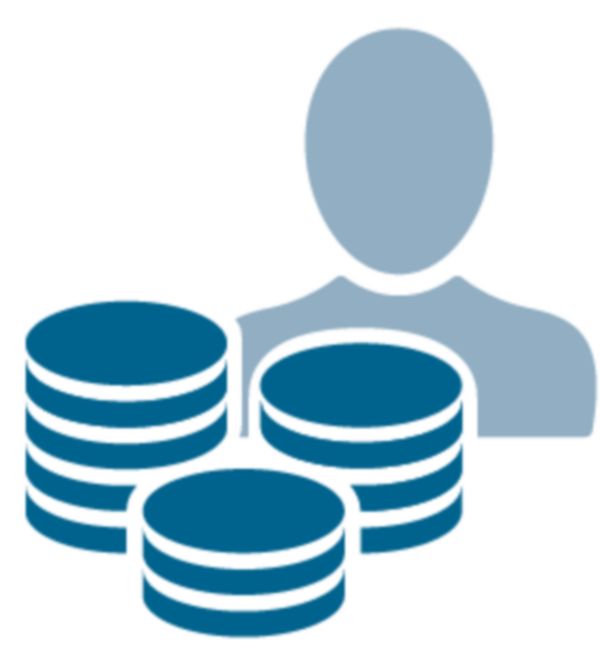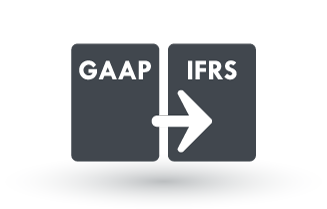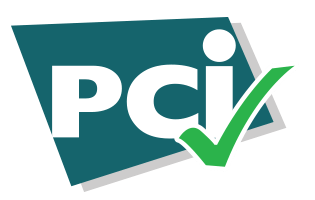
Beneficiary Account
A community investing account that supports disadvantaged areas.
It is a form of socially responsible investment that allows you to contribute to community development. The progress could be anything from providing affordable housing to healthcare to education.
You can make an investment to bring economic development to your specific community or any other society. This involve local investing to help underprivileged community development.
- A beneficiary account offer business grant, trade financing, real estate development and more.
- It is feasible with the aid of financial intermediaries and investment products.

Stakeholders
Stakeholders are stock grant and bond investors in grant investments program for ownership and rights within by holding an investment account for community programs
| Stock Annual Yield | 0.2 to 0.3% |
| Periodic Acquirer Interest | 3 to 5% |
| Processing Rate | 0.7 to 3% |
How Does a Beneficiary Account Work?
A Beneficiary Account is used as an investments grant to create opportunities and resources for underprivileged people. These people are underserved by conventional financial institutions.
Beneficiary Account assists individuals in meeting several community needs and supporting local development. Beneficiary Account might not be the best way to grow your wealth, but it helps you diversify your portfolio.
This account aim to boost economic development in low- to moderate-income neighborhoods. Generally, community development to promote affordable housing, job opportunities, and a healthy community.
Am Beneficiary Account is a viable choice. Especially, if you want an alternative to charity fundraising . You can open your account so that you organization can help underprivileged communities for development.
However, they prefer to provide funds to low to moderate-income clients only. They actually provide 60% of community development loan funds to only low-income communities.
Community Investment Bonding
Community investment bonds are a social financing service bonds for beneficiary account holders. They help not-for-profit organizations fund initiatives that have a positive social impact.
Participating in community investment bonds is another way to be a part of the investor community. These bonds are interest-bearing bonds designed for small-scale investors.
Community Investment Bonds feature a fixed rate of return for a set period. As a result, you get a decent return on your investment while also supporting a good cause.
Agency Bonds
Agency bonds are another ideal way to invest in the community. The federal government department or government-sponsored enterprise provides security for these bonds.
Government entities that issue bonds help people get affordable housing. Some agency bonds are even exempt from local and state taxes. Moreover, these bonds have higher interest rates than U.S. Treasury bonds.
Like any other bonds, they have some interest rate risks. However, these risks are relatively less than conventional community investment methods.
Some agency bonds are available with fixed coupon rates, while others may have floating rates. Note that the interest rates for bonds with floating rates are periodically adjusted.
Pooled Investment Portfolios
If you want to diversify your Beneficiary Account, you can always choose pooled investment portfolios. These are funds in a portfolio from several individual investors. A pooled investment portfolio collects capital from individual investors and invests as one huge portfolio.
Some common examples of professionally managed pooled funds are exchange-traded funds, unit investment trusts, and hedge funds.
Investors benefit from economies of scale in pooled investment portfolios. After all, it allows them to lower trading costs per dollar invested. Moreover, investors can take advantage of opportunities available to big institutional investors.
You can look for a pooled investment portfolio that serves low-income areas within a community.
Affordable Housing and Real Estate
Real estate investment is the best option if you want to earn passive income indefinitely. It has the potential for long-term passive income. At the same time, you can provide affordable housing to the needy in your area.
Investing in real estate helps you improve the neighborhood and the lives of people living in it. However, real estate community investment will be ethical only when the rent is fair – consider the ongoing housing crisis in the U.S.
Municipal Bond
To invest in the community, you can buy municipal bonds as well. A municipal bond, also known as a muni bond (or just muni), is issued by the municipality or local government.
In the United States, bondholders often get a decent interest rate. Unfortunately, these bonds are not always exempt from state and federal income taxation.
You can buy municipal bonds that serve underserved people. These people do not have access to affordable housing, reputable or safe educational facilities, medical care, or may have bad roads in their neighborhoods.
When you invest in the municipal bond, you support the construction of highways, schools, bridges, and more.
Generally, there are two types of municipal bonds. They are divided based on the amount of interest paid, and the debt returned.
- General Obligation BondA government entity issues this bond. Some general obligation bonds are paid with dedicated property taxes, while others with general funds.
- Revenue BondA revenue bond is another municipal bond type, backed by revenue generated by a specific project, such as an expressway, or local stadium. The issuer guarantees the lending amount and interest payments for the revenue bond.
By investing in municipal bonds, you can fund your local government for public works. They can use your funds for making parks, bridges, roads, and libraries. You get the investment amount plus interests on municipal bonds when they complete the maturity date.
The good thing about municipal bonds is that they are income-tax-free. Also, they are more secure than stocks.
Apart from municipality bonds, you can buy stocks of public traded companies. These firms invest in underserved communities. This method is not a direct community investment. Nevertheless, it provides investors with options to look for higher-retu
Mutual Funds
Socially responsible mutual funds can be another good option for community investment. They hold securities in companies that stick to social, moral, and environmental beliefs.
Look for socially responsible mutual funds that allocate up to at least 10% of funds to community investing. By making contributions to the mutual fund community, you can contribute to supporting disadvantaged communities.
Note that federal financial agencies do not insure these mutual funds
Disclaimer
Treasury Bank provides investment services as a distributor of third party Investment products (shortly referred as ‘investment products’). Treasury Bank does not provide investment advisory services in any manner or form. Investment Products(i) are not bank deposits or obligations of or guaranteed by a government unit. Treasury Bank or any of its affiliates or subsidiaries; (ii) are not insured by any governmental agency and (iii) are subject to investment risks, including the possible loss of the principal amount invested. Past performance is not indicative of future results, prices/invested sum is subject to market risks which may result in appreciation or depreciation. The ownership of any investment decision(s) shall exclusively vest with the Investor after analyzing all possible risk factors and by exercise of his/her/its independent discretion and Treasury Bank shall not be liable or held liable for any consequences thereof.
Investment products are available to US persons. Residents of Canada and may not be available in all jurisdictions. By making any investment, you confirm your deemed acceptance to the conditions mentioned herein.
Investment products are distributed by Treasury Bank on a non -discretionary and non-participation basis. The final investment decision shall at all times exclusively remain with the investor.
Investor investing in investment products acknowledge that: (i) the third party product provider may invest in products denominated in local currency; (ii) there could be risk of exchange rate fluctuations, which may result in loss of principal or erosion of value of investment. This document does not constitute the distribution of any information or the making of any offer or solicitation by anyone in any jurisdiction in which such distribution or offer is not authorized or to any person to whom it is unlawful to distribute such a document or make such an offer or solicitation. Please exercise diligence by reading & understanding the Key Information Memorandum(s)/Scheme Investment Document(s) & Statement of Additional Information/Term Sheet/Prospectus carefully before investing and no claim whatsoever shall be made against Treasury Bank any of its affiliates or subsidiaries and / or employees claiming any influence/recommendation/advice/responsibility/liability as against your decision to invest in any investment product.
Investor should ensure to understand, accept the identities of different parties and the roles that they play in relation to the various Investment Product(s). Investor acknowledges that, there may be various actual or potential conflicts of interest between Treasury Bank or their affiliates or subsidiaries (collectively “Connected Persons”) and that of an investor itself, as a result of the various investment and/or commercial businesses and/or activities of the Connected Persons. You are deemed to accept, on purchasing/ subscribing / investing to a particular Investment Product(s), that any such conflict may exist and may be prejudicial to an investment in the Investment Product(s).
Treasury Bank provides independent research or analysis in the substance or preparation of this report. The information in this report has been obtained from reports issued by Treasury Bank Investment Research. Such information is based upon sources Treasury Bank third party Investment Research believe to be reliable. Treasury Bank., however, do not guarantee its accuracy and it may be incomplete or condensed. All opinions and estimates constitute CGM’s view as of the date of report and are subject to change without notice. This report / presentation is provided for general information only and nothing contained in the material constitutes a recommendation for the purchase or sale of any security and/or currency. As a prerequisite condition for arriving at a decision to invest, any investor considering an investment should seek independent advice on the suitability or otherwise of the particular investment.
Treasury Bank does not market any product or service to individuals resident in any state or jurisdiction not allowed. This document is construed as, an offer, invitation or solicitation under federal and state laws to buy or sell any of the products and services mentioned herein to individuals resident local, state, national, international and globally. All investments outlines the types of information we collect, and how and why we use that information.
Earned interest in treasury bank accounts is not compounded interest. At the end of the statement cycle/month, earned interest is swept to the checking account with banking partners.
Investment products are available to US persons. Residents of Canada and may not be available in all jurisdictions. By making any investment, you confirm your deemed acceptance to the conditions mentioned herein.
Treasury Bank accounts are Investment, products that are not:
- FDIC insured
- Intermediary bank guarantee
- Distributed by any federal agency
- Without risk of losing value
- A nation government deposit
To get more information contact: contact@treasurybank.org






